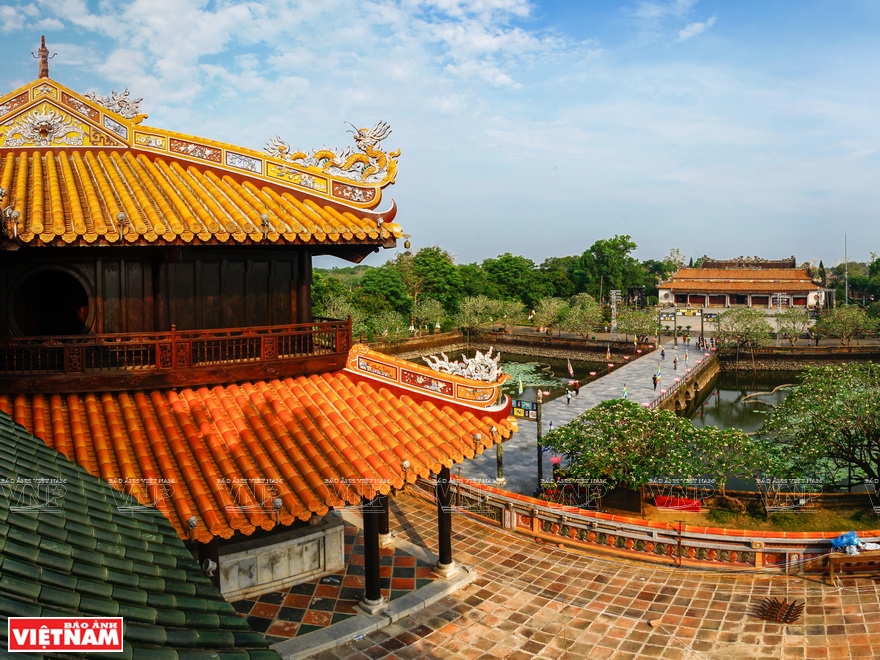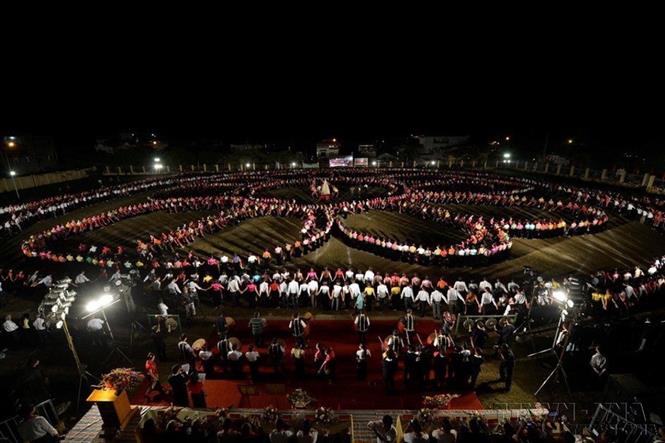
With 121 out of the 171 valid votes, Vietnam has secured the highest number of votes in Group 4 of the Asia-Pacific, officially becoming a member of the World Heritage Committee for the 2023-2027 term.
The country scored its landslide win at the election held as part of the 24th session of the General Assembly of States Parties to the Convention concerning the Protection of the World Cultural and Natural Heritage (World Heritage Convention) in Paris on November 22.
Vietnam earned the highest number of votes in Group 4 and was ranked second out of the nine countries elected to the committee from five regions.
Vietnam’s contributions to heritage conservation acknowledged

The World Heritage Committee is one of the most crucial governing bodies within the United Nations Educational, Scientific and Cultural Organization (UNESCO), empowered to make decisions on key issues related to the recognition of cultural and natural heritages worldwide. It evaluates the conservation status of global heritage sites, while determining policies, budgetary directions, and development orientations under the World Heritage Convention which boasts the biggest membership in UNESCO, at 194.
Given its significance, the election for a seat in the 21-member committee is always challenging and highly competitive.
On Vietnam’s remarkable win, Deputy Minister of Foreign Affairs Ha Kim Ngoc stated that this marks the second time the nation has assumed a role in the highest governing body for culture within UNESCO.
The diplomat, who is also Chairman of the Vietnam National Commission for UNESCO and head of the Vietnamese delegation attending the 24th session, stressed that the election holds important significance in many aspects. It affirms the righteous foreign policy of the Vietnamese Party and State, as encapsulated in the spirit of the 13th National Party Congress and Directive No. 25-CT/TW of the Party Central Committee’s Secretariat on multilateralism, diversification, comprehensive and extensive international integration, strengthening and elevating multilateral foreign diplomacy and effectively coordinating political, economic, and cultural diplomacy as well as bilateral and multilateral diplomacy.

Overwhelmingly winning the election also reflects Vietnam’s international prestige as well as the international community’s trust in and support for the country’s ability to contribute and manage in global multilateral institutions. It acknowledges Vietnam’s tangible contributions to her relationship with UNESCO in the conservation and promotion of heritage values at home and around the world.






According to Ngoc, many pieces of good news have come to Vietnam recently.
In late October, Da Lat in the Central Highlands province of Lam Dong and Hoi An in the central province of Quang Nam were named in the UNESCO Creative Cities Network (UCCN) in terms of music as well as of crafts and folk art, respectively. The two were among the 55 new members of the network announced on October 31 on the occasion of World Cities Day.
On November 8, Vietnam was elected a Vice President of the 42nd session of the UNESCO’s General Conference, representing the Asia-Pacific. The General Conference’s duty is to set the programmes and the budget of UNESCO, elects the members of the Executive Board, and appoints, every four years, the Director-General.
On November 21, at its 42nd session in Paris, the 42nd UNESCO General Conference passed a resolution on the list of eminent personalities and historical events commemorated in 2023 – 2024, which included Progenitor of Vietnamese traditional medicine Le Huu Trac (1724 – 1791), alias Hai Thuong Lan Ong. The man was not only a great physician and pharmacist but also an excellent poet and writer, and a thinker with progressive thought and profound humanitarian spirit. After passing away, he was honoured as the “Saint of medicine of Vietnam”.

These achievements have contributed to presenting a dynamic image of Vietnam in innovation and international integration as well as her maintaining of rich traditions and a distinct national identity, Ngoc said. They stem from the effective implementation of the nation’s cultural diplomacy strategy until 2030, and comprehensive, cohesive, and widespread campaigning with international partners in Hanoi, Paris, and the capitals of other countries through Vietnamese diplomatic missions.

Vietnam participating in orienting UNESCO’s operations

Ambassador Le Thi Hong Van, head of Vietnam’s Permanent Delegation to UNESCO, emphasises that by simultaneously participating in all five of UNESCO’s top governing mechanisms for the first time, Vietnam has an opportunity to actively and positively contribute to the overall programmes and major orientations of the organisation, particularly in the cultural domain. This also helps raise awareness of the importance of heritage, as it is not only a vital resource for cultural diversity, creativity, and dialogue among cultures but also a driving force for peace, self-empowerment, and sustainable development.

As a member of the World Heritage Committee for the 2023-2027 term, Vietnam will be well-positioned to further contribute to the improvement and implementation of the goals and priorities set by the World Heritage Convention. The country can also share her experiences in harmonising the relationship between conservation and development of world heritages. UNESCO Director-General Audrey Azoulay once affirmed that Vietnam is a typical success story in linking economic and cultural development and also a good model for environmental conservation and sustainable tourism development.
Speaking to the press on the evening of November 22, Le Thi Thu Hien, Director of the Department of Cultural Heritage under the Ministry of Culture, Sports and Tourism, stated that as a member of the World Heritage Committee, Vietnam will join 20 other member states to supervise the implementation of the convention, protect, preserve, and bring into play the values of the 1,199 world heritage elements around the globe, and consider the recognition of new ones to uphold, promote, and pass down historical and cultural values to future generations, and help with sustainable development in the world.

She said the election result is the fruit of concerted efforts and effective coordination among agencies under the Ministry of Foreign Affairs, the Ministry of Culture, Sports and Tourism, the Vietnam National Commission for UNESCO, and the Permanent Delegation to UNESCO as well as other organs and experts in Vietnam and overseas.
The 24th session of the General Assembly of States Parties to the Convention concerning the Protection of the World Cultural and Natural Heritage (World Heritage Convention) is scheduled for November 22 and 23, as part of the 42nd session of the General Conference of UNESCO.
During the first meeting, the Vietnamese delegation actively engaged in and made contributions to the discussions.
In diplomatic exchanges, member countries spoke highly of Vietnam’s efforts in protecting its eight cultural and natural world heritages and ongoing building of new dossiers to help enrich the global cultural diversity.
Vietnam’s experiences, understanding, and efforts in safeguarding and promoting world heritages in terms of theory, legal aspects, management, and practical implementation were acknowledged as valuable lessons for many countries regionally and internationally. The Southeast Asian nation’s efforts have contributed to the effective implementation of the World Heritage Convention, the protection and preservation of cultural and natural heritage for humanity, and the promotion of the overall sustainable development of nations.
Vietnam has 35 titles recognised by UNESCO, including eight world cultural and natural heritages, 15 intangible cultural heritages, three world documentary heritages, six documentary heritages in the Asia-Pacific region, and three creative cities./.
